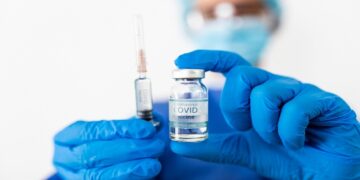Application includes CheckMate -066, a clinical trial of Opdivo vs. dacarbazine chemotherapy in patients who had not received prior therapy
CheckMate -066 marked the first time that a PD-1 immune checkpoint inhibitor demonstrated survival in a Phase III clinical trial
Today announced that the U.S. Food and Drug Administration (FDA) has accepted for filing and review the supplemental Biologics License Application (sBLA) for Opdivo (nivolumab) for the treatment of previously untreated patients with unresectable or metastatic melanoma. The FDA also granted Priority Review for this application. The projected FDA action date is August 27, 2015.
Opdivo was first approved by the FDA in December 2014 for patients with unresectable or metastatic melanoma and disease progression following Yervoy (ipilimumab) and, if BRAF V600 mutation positive, a BRAF inhibitor. This initial indication was approved under accelerated approval based on tumor response rate and durability of response from CheckMate -037 clinical trial results. This new sBLA accepted by the FDA includes data from CheckMate -066, which evaluated Opdivo in treatment naïve patients with BRAF wild-type advanced melanoma as compared to dacarbazine chemotherapy (DTIC). In the trial, safety and tolerability were well-characterized with fewer treatment-related Grade 3/4 adverse events observed with Opdivo than dacarbazine.
“The CheckMate -066 trial marked the first time that a PD-1 immune checkpoint inhibitor showed a survival benefit in a randomized Phase III trial,” said Michael Giordano, senior vice president, Head of Development, Oncology, Bristol-Myers Squibb. “We look forward to continuing to work with the FDA to ensure cancer patients are provided the latest clinical advances that have the potential for improved responses and long-term survival.”
About Advanced Melanoma
Melanoma is a form of skin cancer characterized by the uncontrolled growth of pigment-producing cells (melanocytes) located in the skin. Metastatic melanoma is the deadliest form of the disease, and occurs when cancer spreads beyond the surface of the skin to the other organs, such as the lymph nodes, lungs, brain or other areas of the body. The incidence of melanoma has been increasing for at least 30 years. In 2015, an estimated 73,870 melanoma cases will be diagnosed in the U.S. Melanoma is mostly curable when treated in its early stages. However, in its late stages, the average survival rate is just 6 months with a 1-year survival of 25.5%, making it one of the most aggressive forms of cancer.
About Opdivo
Opdivo is a programmed death-1 (PD-1) immune checkpoint inhibitor that has received approval from the U.S. FDA as a monotherapy in two cancer indications. On March 5, 2015, Opdivo received FDA approval for the treatment of patients with metastatic squamous non-small cell lung cancer (NSCLC) with progression on or after platinum-based chemotherapy.
In the U.S., Opdivo is also indicated for the treatment of patients with unresectable or metastatic melanoma and disease progression following Yervoy (ipilimumab) and, if BRAF V600 mutation positive, a BRAF inhibitor. This indication is approved under accelerated approval based on tumor response rate and durability of response. Continued approval for this indication may be contingent upon verification and description of clinical benefit in the confirmatory trials. Opdivo became the first PD-1 immune checkpoint inhibitor to receive regulatory approval anywhere in the world on July 4, 2014 when Ono Pharmaceutical Co. announced that it received manufacturing and marketing approval in Japan for the treatment of patients with unresectable melanoma.
Bristol-Myers Squibb has a broad, global development program to study Opdivo in multiple tumor types consisting of more than 50 trials – as monotherapy or in combination with other therapies – in which more than 7,000 patients have been enrolled worldwide.
Immuno-Oncology at Bristol-Myers Squibb
Surgery, radiation, cytotoxic or targeted therapies have represented the mainstay of cancer treatment over the last several decades, but long-term survival and a positive quality of life have remained elusive for many patients with advanced disease.
To address this unmet medical need, Bristol-Myers Squibb is leading research in an innovative field of cancer research and treatment known as immuno-oncology, which involves agents whose primary mechanism is to work directly with the body’s immune system to fight cancer. The company is exploring a variety of compounds and immunotherapeutic approaches for patients with different types of cancer, including researching the potential of combining immuno-oncology agents that target different pathways in the treatment of cancer.
Bristol-Myers Squibb is committed to advancing the science of immuno-oncology, with the goal of changing survival expectations and the way patients live with cancer.
About the Bristol-Myers Squibb and Ono Pharmaceutical Collaboration
In 2011, through a collaboration agreement with Ono Pharmaceutical, Bristol-Myers Squibb expanded its territorial rights to develop and commercialize Opdivo globally except in Japan, South Korea and Taiwan, where Ono had retained all rights to the compound at the time. On July 23, 2014, Bristol-Myers Squibb and Ono Pharmaceutical further expanded the companies’ strategic collaboration agreement to jointly develop and commercialize multiple immunotherapies – as single agents and combination regimens – for patients with cancer in Japan, South Korea and Taiwan.
IMPORTANT SAFETY INFORMATION
Immune-Mediated Pneumonitis
Severe pneumonitis or interstitial lung disease, including fatal cases, occurred with OPDIVO treatment. Across the clinical trial experience in 691 patients with solid tumors, fatal immune-mediated pneumonitis occurred in 0.7% (5/691) of patients receiving OPDIVO; no cases occurred in Trial 1. In Trial 1, pneumonitis, including interstitial lung disease, occurred in 3.4% (9/268) of patients receiving OPDIVO and none of the 102 patients receiving chemotherapy. Immune-mediated pneumonitis occurred in 2.2% (6/268) of patients receiving OPDIVO; one with Grade 3 and five with Grade 2. Monitor patients for signs and symptoms of pneumonitis. Administer corticosteroids for Grade 2 or greater pneumonitis. Permanently discontinue OPDIVO for Grade 3 or 4 and withhold OPDIVO until resolution for Grade 2. Immune-Mediated Colitis
In Trial 1, diarrhea or colitis occurred in 21% (57/268) of patients receiving OPDIVO and 18% (18/102) of patients receiving chemotherapy. Immune-mediated colitis occurred in 2.2% (6/268) of patients receiving OPDIVO; five with Grade 3 and one with Grade 2. Monitor patients for immune-mediated colitis. Administer corticosteroids for Grade 2 (of more than 5 days duration), 3, or 4 colitis. Withhold OPDIVO for Grade 2 or 3. Permanently discontinue OPDIVO for Grade 4 colitis or recurrent colitis upon restarting OPDIVO. Immune-Mediated Hepatitis
In Trial 1, there was an increased incidence of liver test abnormalities in the OPDIVO-treated group as compared to the chemotherapy-treated group, with increases in AST (28% vs 12%), alkaline phosphatase (22% vs 13%), ALT (16% vs 5%), and total bilirubin (9% vs 0). Immune-mediated hepatitis occurred in 1.1% (3/268) of patients receiving OPDIVO; two with Grade 3 and one with Grade 2. Monitor patients for abnormal liver tests prior to and periodically during treatment. Administer corticosteroids for Grade 2 or greater transaminase elevations. Withhold OPDIVO for Grade 2 and permanently discontinue OPDIVO for Grade 3 or 4 immune-mediated hepatitis. Immune-Mediated Nephritis and Renal Dysfunction
In Trial 1, there was an increased incidence of elevated creatinine in the OPDIVO-treated group as compared to the chemotherapy-treated group (13% vs 9%). Grade 2 or 3 immune-mediated nephritis or renal dysfunction occurred in 0.7% (2/268) of patients. Monitor patients for elevated serum creatinine prior to and periodically during treatment. For Grade 2 or 3 serum creatinine elevation, withhold OPDIVO and administer corticosteroids; if worsening or no improvement occurs, permanently discontinue OPDIVO. Administer corticosteroids for Grade 4 serum creatinine elevation and permanently discontinue OPDIVO. Immune-Mediated Hypothyroidism and Hyperthyroidism
In Trial 1, Grade 1 or 2 hypothyroidism occurred in 8% (21/268) of patients receiving OPDIVO and none of the 102 patients receiving chemotherapy. Grade 1 or 2 hyperthyroidism occurred in 3% (8/268) of patients receiving OPDIVO and 1% (1/102) of patients receiving chemotherapy. Monitor thyroid function prior to and periodically during treatment. Administer hormone replacement therapy for hypothyroidism. Initiate medical management for control of hyperthyroidism. Other Immune-Mediated Adverse Reactions
The following clinically significant, immune-mediated adverse reactions occurred in less than 2% of OPDIVO-treated patients: adrenal insufficiency, uveitis, pancreatitis, facial and abducens nerve paresis, demyelination, autoimmune neuropathy, motor dysfunction, and vasculitis. Across clinical trials of OPDIVO administered at doses 3 mg/kg and 10 mg/kg, additional clinically significant, immune-mediated adverse reactions were identified: hypophysitis, diabetic ketoacidosis, hypopituitarism, Guillain-Barré syndrome, and myasthenic syndrome. Based on the severity of adverse reaction, withhold OPDIVO, administer high-dose corticosteroids, and, if appropriate, initiate hormone- replacement therapy. Embryofetal Toxicity
Based on its mechanism of action, OPDIVO can cause fetal harm when administered to a pregnant woman. Advise pregnant women of the potential risk to a fetus. Advise females of reproductive potential to use effective contraception during treatment with OPDIVO and for at least 5 months after the last dose of OPDIVO. Lactation
It is not known whether OPDIVO is present in human milk. Because many drugs, including antibodies, are excreted in human milk and because of the potential for serious adverse reactions in nursing infants from OPDIVO, advise women to discontinue breastfeeding during treatment. Serious Adverse Reactions
Serious adverse reactions occurred in 41% of patients receiving OPDIVO. Grade 3 and 4 adverse reactions occurred in 42% of patients receiving OPDIVO. The most frequent Grade 3 and 4 adverse drug reactions reported in 2% to <5% of patients receiving OPDIVO were abdominal pain, hyponatremia, increased aspartate aminotransferase, and increased lipase. Common Adverse Reactions
The most common adverse reaction (=20%) reported with OPDIVO was rash (21%). Please see US Full Prescribing Information for OPDIVO.
About Bristol-Myers Squibb
Bristol-Myers Squibb is a global pharmaceutical company whose mission is to discover, develop and deliver innovative medicines that help patients prevail over serious diseases. For more information about Bristol-Myers Squibb, visit www.bms.com, or follow us on Twitter at http://twitter.com/bmsnews
Bristol-Myers Squibb Forward-Looking Statement
This press release contains “forward-looking statements” as that term is defined in the Private Securities Litigation Reform Act of 1995 regarding the research, development and commercialization of pharmaceutical products. Such forward-looking statements are based on current expectations and involve inherent risks and uncertainties, including factors that could delay, divert or change any of them, and could cause actual outcomes and results to differ materially from current expectations. No forward-looking statement can be guaranteed. Among other risks, there can be no guarantee that Opdivo will receive regulatory approval for this new indication or, if approved, that it will become a commercially successful product. Forward-looking statements in this press release should be evaluated together with the many uncertainties that affect Bristol-Myers Squibb’s business, particularly those identified in the cautionary factors discussion in Bristol-Myers Squibb’s Annual Report on Form 10-K for the year ended December 31, 2014 in our Quarterly Reports on Form 10-Q and our Current Reports on Form 8-K. Bristol-Myers Squibb undertakes no obligation to publicly update any forward-looking statement, whether as a result of new information, future events or otherwise.
Contact:
Bristol-Myers Squibb Company Media: Chrissy Trank, 609-419-5497 christina.trank@bms.com or Investors: Ranya Dajani, 609-252-5330 ranya.dajani@bms.com

















